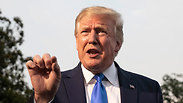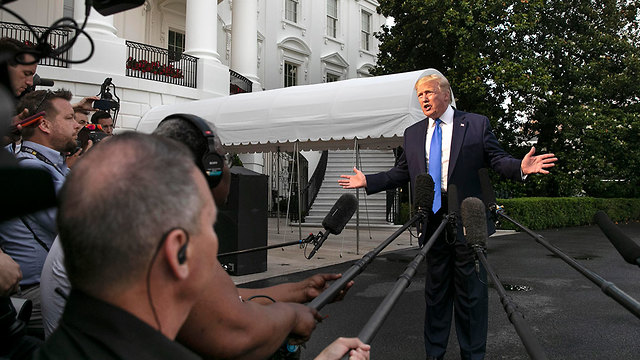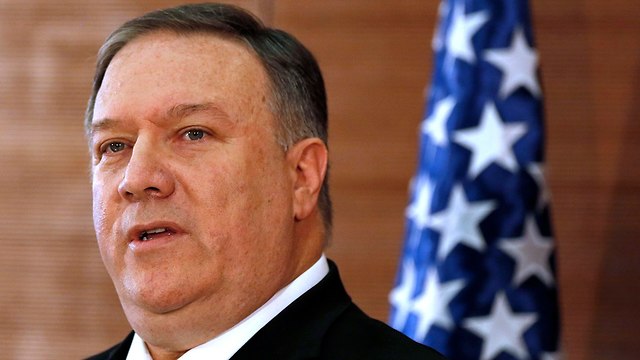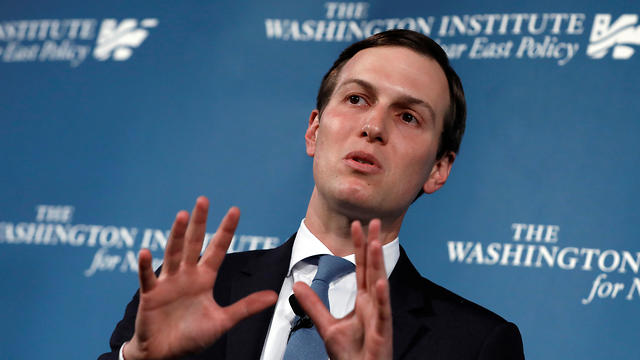
Saying the political situation in Israel is “all messed up,” Trump added that the U.S. is "not happy about that.”
Meanwhile, Trump said Secretary of State Mike Pompeo may be right in assessing that the administration’s forthcoming Mideast peace plan may not go anywhere. A Washington Post report quoted Pompeo as telling a group of Jewish leaders in New York that the long-delayed plan may not “gain traction.”
“We’re doing our best to help the Middle East to get a peace plan,” Trump told reporters when asked about Pompeo's words. “I understand why (Pompeo) said that. Most people would say it can’t be done. I think it can be done.”
Also Sunday, White House senior adviser Jared Kushner said in an interview broadcast that the Palestinians deserve "self-determination," but stopped short of backing Palestinian statehood and expressed uncertainty over their ability to govern themselves.
Kushner, President Donald Trump's son-in-law and an architect of the White House's yet-to-be-released Middle East peace plan, told the "Axios on HBO" television program it would be a "high bar" when asked if the Palestinians could expect freedom from Israeli military and government interference.
The Palestinian leadership has boycotted a diplomatic effort that Trump has touted as the "deal of the century." Although Kushner has been drafting the plan for two years under a veil of secrecy, it is seen by Palestinian and some Arab officials as tilting heavily in Israel's favor and denying them a state of their own.
Kushner again avoided saying explicitly whether the plan would include a two-state solution, the bedrock of U.S. policy for decades, calling for a Palestinian state in the West Bank and Gaza Strip, with its capital in East Jerusalem.
But he said: "I do think they should have self-determination. "I'm going to leave the details until we come out with the actual plan."
The Palestinian Authority has said it will not attend a U.S.-sponsored investment conference in late June in Bahrain where the economic component is expected to be unveiled.
U.S. officials have been vague about the timing for releasing proposals for resolving the thorny political issues at the core of the Israeli-Palestinian conflict. But experts are skeptical of the Trump administration's chances for success.
With Israel heading for new elections in September, uncertainty is expected to further delay the plan's rollout.
Asked whether he believed the Palestinians were capable of governing themselves without Israeli interference, Kushner said: "That's a very good question. That's one that we'll have to see. The hope is that they, over time, will become capable of governing."
The Palestinians, he said, "need to have a fair judicial system ... freedom of press, freedom of expression, tolerance for all religions" before the Palestinian areas can become "investable."
Asked whether he understood why the Palestinians might not trust him, Kushner said: "I'm not here to be trusted" and that he believed the Palestinian people would judge the plan based on whether "they think this will allow them to have a pathway to a better life or not."
The Palestinian leadership has refused to deal with the Trump administration since late 2017 when the president decided to move the U.S. Embassy to Jerusalem from Tel Aviv and recognized Jerusalem as the capital of Israel.



















